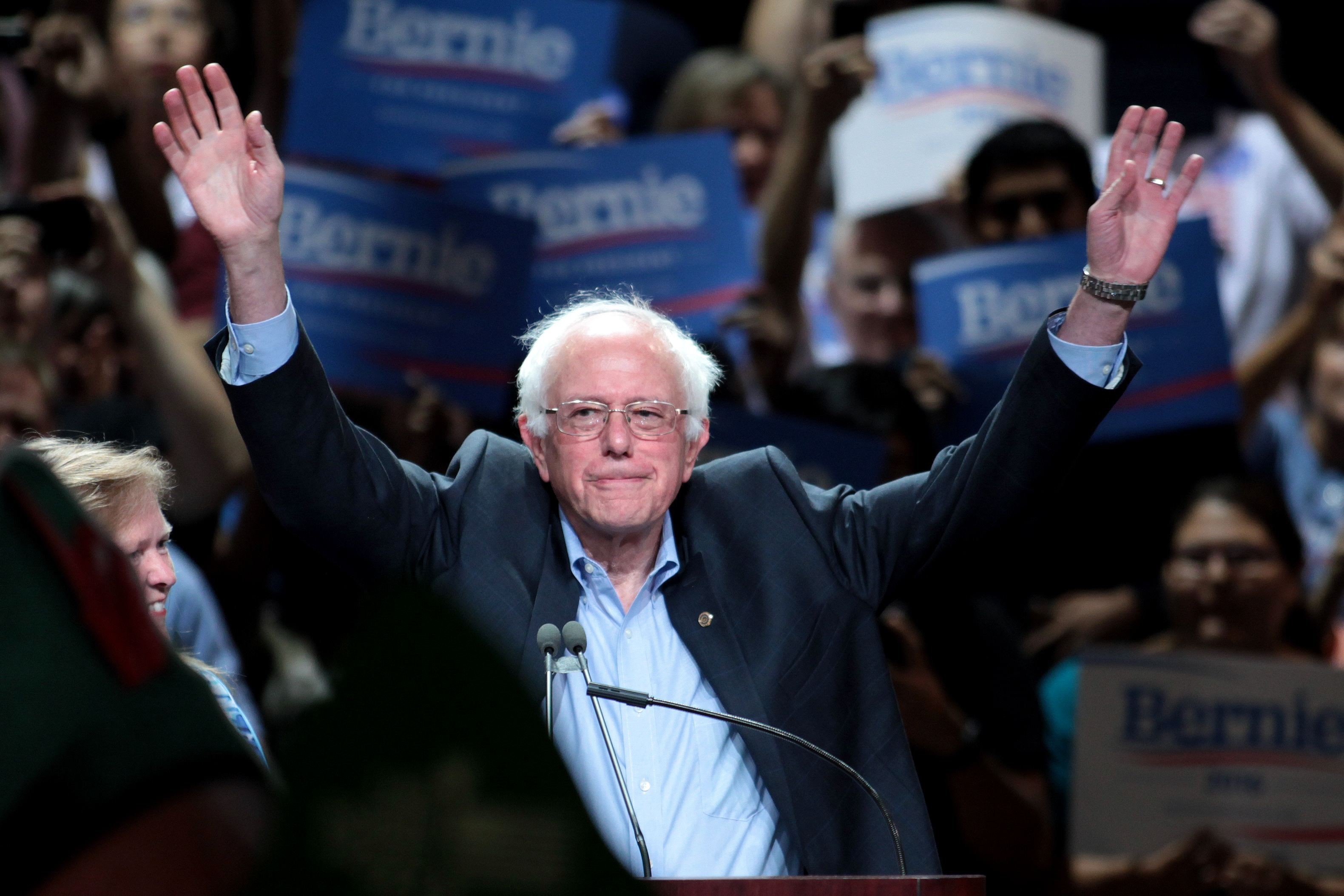Scrolling through Facebook, it’s apparent that this generation loves Bernie Sanders. In Iowa, Sanders won the vote of young Democrats by a 6-to-1 margin. Being a Republican, I’m terrified by many of my peers’ support for Sanders, who openly identifies with and advances socialism.
I can understand why many young people prefer Sanders’ democratic socialism to capitalism. Growing up in a capitalist country during an era of low wage growth and a lack of employment opportunities, the grass can seem greener on the other side, where the government promises to take care of basic needs and education.
But Sanders’ policies that advance government control of the market are awful. They’re roundly rejected by serious economists and think tanks of all political persuasions. In this column, I’ll address one of Sanders’ policy proposals that is particularly bad: a nationwide $15 minimum wage.
First, it’s important to examine the narrative that the Sanders’ campaign and left-wing Democrats advance on the minimum wage: that it prevents working families from providing for themselves and keeps American workers in poverty. Based on this claim, the facts simply aren’t on Sanders’ side.
According to 2012 annual averages from the Bureau of Labor Statistics, only 1.5 percent of all potential workers earn the minimum wage or lower. Of this group, 55 percent are 25 years old or younger (31 percent are teenagers). Just 0.8 percent of all people older than 25 earn the minimum wage, certainly not a gigantic population being crushed by unfair wages.
But even among those older minimum wage workers, more than three-fifths take the role of second or third earners in their households, research from the Employment Policies Institute shows. With an understanding of the characteristics of the minimum wage-earning population, the argument that a low minimum wage is crushing families in our country is increasingly hard to make.
Another major issue with a $15 minimum wage is how it distorts the value of work. I know capitalism is a dirty word among our generation, but its underlying principle is one we hopefully all agree with: One’s work should be compensated appropriately compared to its worth. What makes a minimum wage earner (about two-thirds of whom work in the service industries) deserve $15? Certainly not productivity.
With almost half of all minimum wage workers (44 percent) working in the food service industry, a comparison of food service worker productivity to wage growth is hopefully illustrative of why a $15 minimum wage is not merited based on productivity. The most recent Bureau of Labor Statistics data shows that since 1987, worker productivity has increased by an average of 0.6 percent per year. Over the same period, the minimum wage has risen from $3.35 to $7.25, an average annual increase of more than 3 percent. Within the food service industry, any claim that the minimum wage should be $15 to match productivity growth that already lags wage growth is invalid.
The idea of value also presents a philosophical argument against a $15 minimum wage, which addresses the belief that people (again, a small group) should earn a living wage for any work they do. Why does someone necessarily deserve a living wage if their work is not valuable enough to warrant it? Sure, a minimum wage at some level is necessary to protect against abuse, but why must someone’s wage for the lowest-skilled work necessarily be enough to support them? If work should be valued proportionally, it is hard to make an argument that all work is automatically deserving of a living wage. If we set an artificial floor for wages that exceeds the value of one’s work, what other limits should we set?
Another major flaw in a $15 nationwide minimum wage is that it fails to take into account the wide discrepancies in cost-of-living across the country. $15 is worth nearly twice as much in terms of the goods and services that can be bought in New York compared with a place such as Laramie, Wyoming. Even comparing two nearby cities such as Baltimore and Richmond, Virginia (where a dollar goes 17 percent further when buying goods and services), we can see how foolish it is to uniformly impose a $15 minimum wage.
In areas where people feel the minimum wage isn’t high enough, there will always be the possibility of raising the minimum wage. In Maryland, we’re in the process of raising the minimum wage to $10.10 over the next several years. In cities such as Seattle and San Francisco, the minimum wage will soon be $15. That’s good for them, but why should everyone else have such a high minimum wage if it doesn’t equate to their cost of living?
Sanders’ support for a blanket minimum wage is one of many disastrous policies that are at the heart of his ideology and his campaign. In considering these points, peers of mine who support Sanders should reflect upon what socialism really is and ask themselves whether increased government control of the American economy is a good idea. In the case of a nationwide $15 minimum wage, it most definitely is not.
Sam Wallace is a senior government and politics major. He can be reached at swallacedbk@gmail.com.



